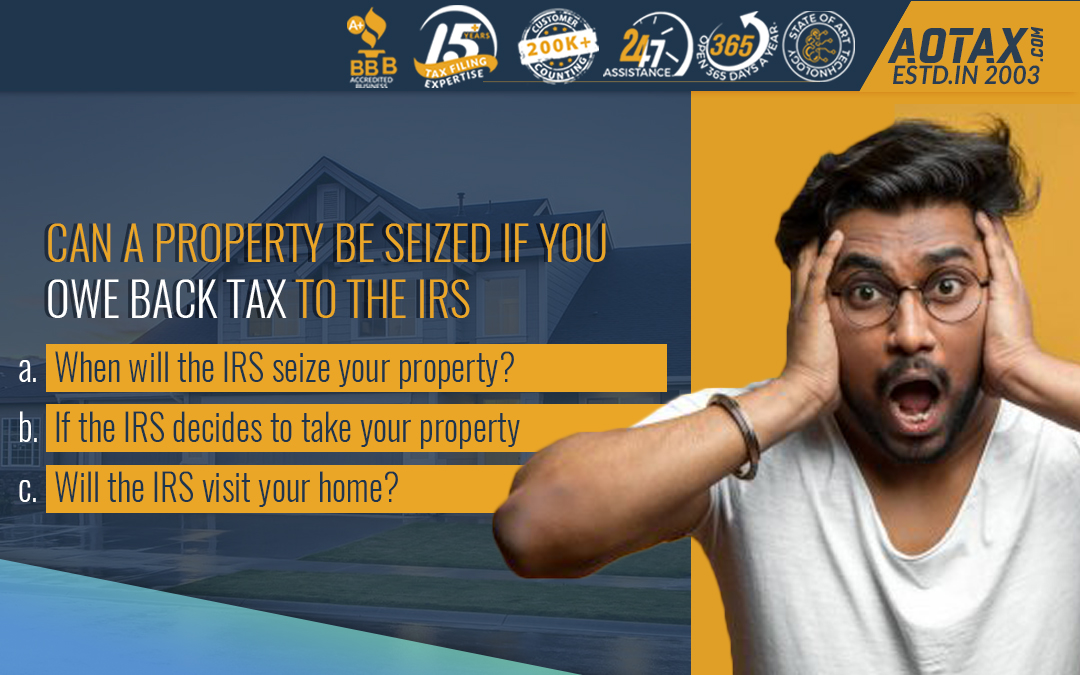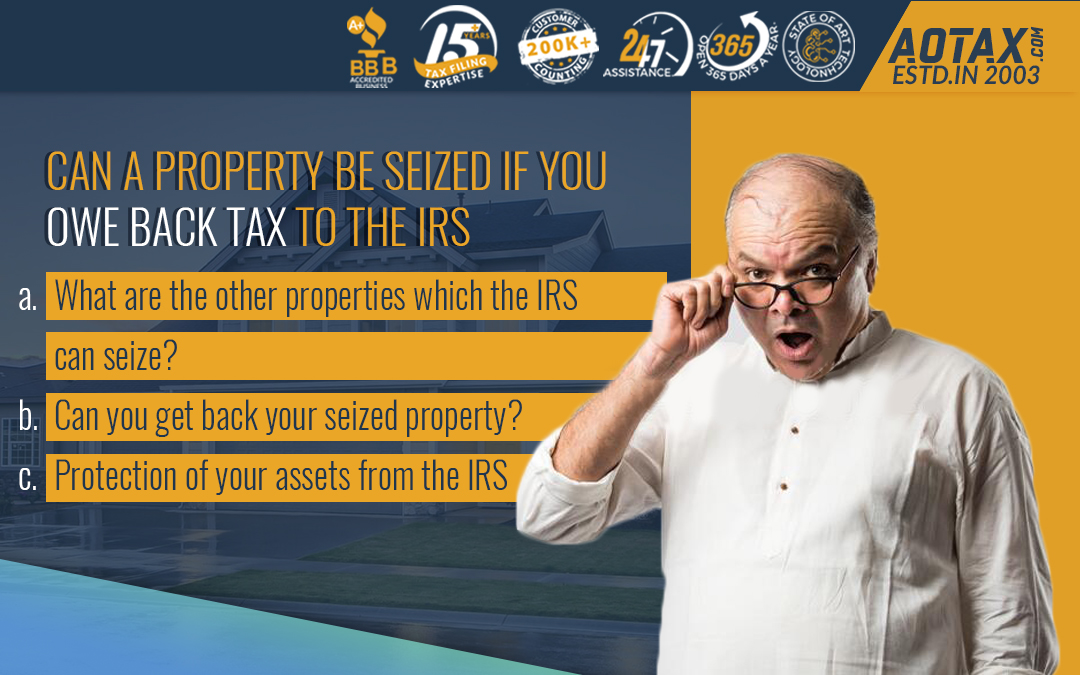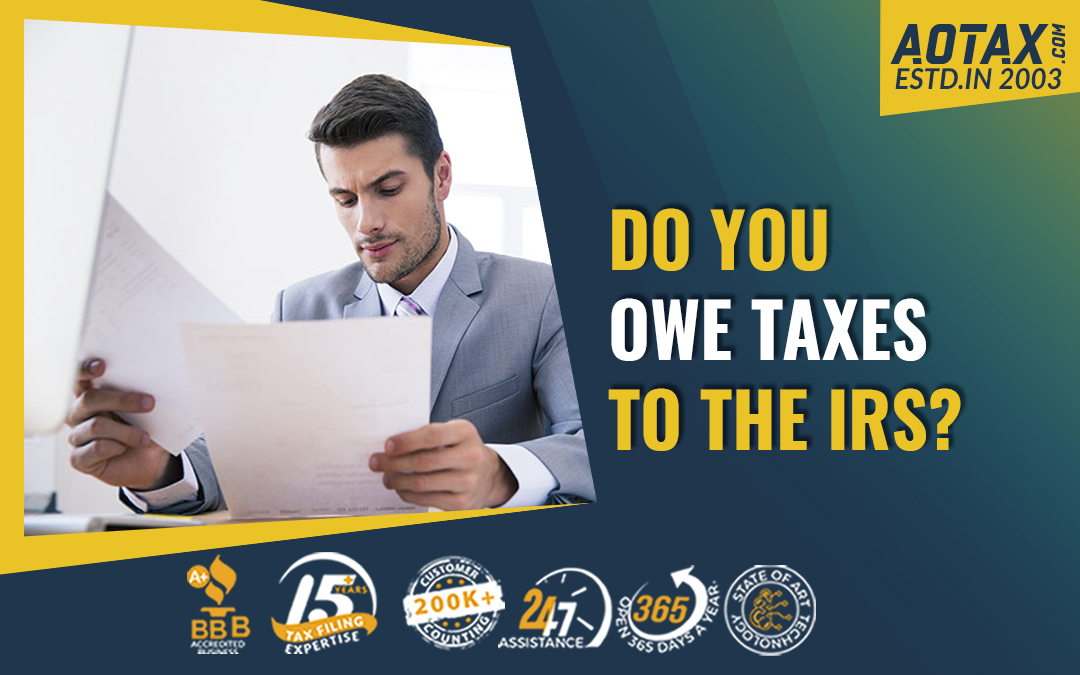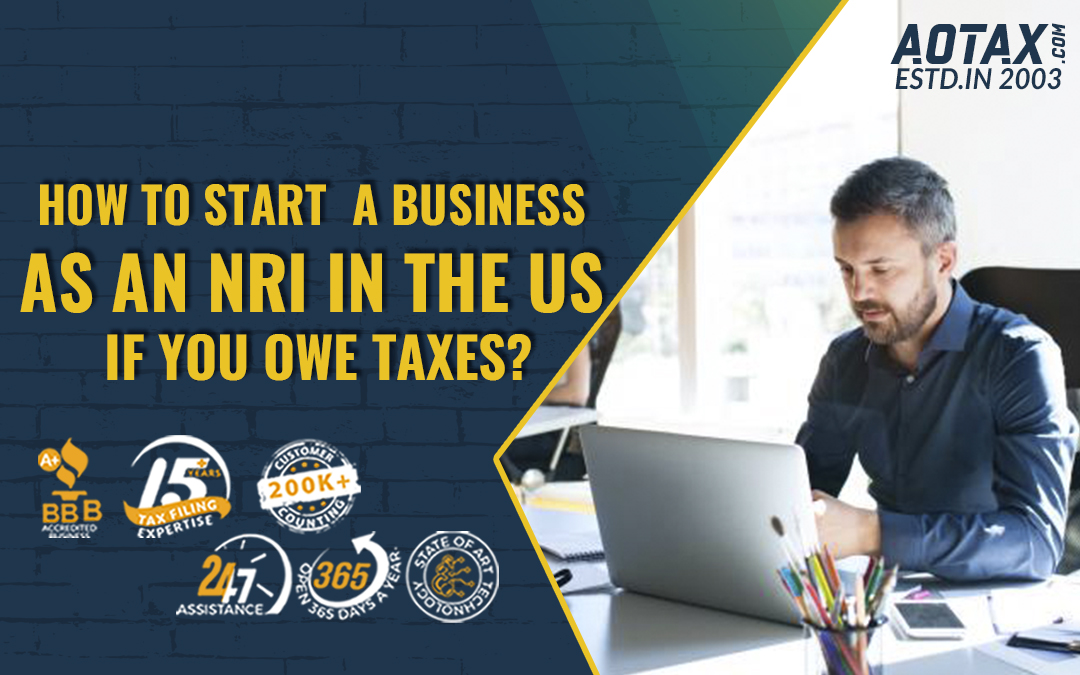Can a property be seized if you owe back tax to the IRS?
Can a property be seized if you owe back tax to the IRS?

“Can the IRS seize my property if I owe taxes?” This is properly the first question every person who owes tax to the IRS enquires. The mere thought of losing their most valuable asset can create a sense of terror and fear in the minds of taxpayers who might have taxes due to the IRS. However, this might depend on why you owe taxes to the IRS, how much tax you owe, and your financial circumstances.
The IRS has the authority to seize the property of a taxpayer if the taxpayer has been neglecting or avoiding payment of taxes to the IRS. This process is otherwise known as Tax Levy. By Tax Levy, the IRS has the legal authority to seize a taxpayer’s property which might include a real estate for the settlement of taxes for which there have been several notices sent to the taxpayer.
When will the IRS seize your property?
- Seizure of your property is the last method which the IRS might follow for the settlement of the back taxes.
- Before the seizure of your assets, the IRS would take the below-mentioned steps for the tax settlement: –
- The IRS would assess your outstanding tax and would issue a notice to you which would be demanding for the payment of the taxes.
- If you have neglected the notice sent to you by the IRS, then
- You will be sent a final notice of intent to levy and also a notice of your right to have a hearing before 30 days of the implementation of the tax levy.
If the IRS decides to take your property
- The IRS would calculate and provide you with the minimum bid price of your property.
- If necessary, you can challenge the price laid off by the IRS and state the fair market price of your property.
- The IRS would issue a notice and make the announcement for sale of the property.
- After the announcement, the IRS waits for 10 days before your property is sold off.
- The entire amount obtained from the sale of the property would be used to recover the expenses incurred in the property seizure, selling of the property, and payoff of your tax debts.
- You will obtain a refund if any amount is left out after the sale is over and if any excess money is left out.
Will the IRS visit your home?
The IRS representative can visit you for tax-related discussion only in circumstances such as
- You owe taxes to the IRS and there is a need for a discussion.
- There is an audit process
- If there is a criminal investigation needed
However, there has been an increase in the fake IRS visits and tax scams lately which urges the taxpayers to be aware of their rights. You have the right to verify whether the IRS representative is authorized or not by asking for their credentials.

What are the other properties which the IRS can seize?
By a tax levy, the IRS can be able to seize the below-mentioned properties.
- Real estate
- Your vehicle
- Wages by Wage Garnishment
- A levy can be put up on your bank account
- Investments and collectibles
Can you get back your seized property?
In case, you want to get back your seized property you would have to take some immediate action for resolving the tax debt. You must get in touch with the IRS to request a release of your seized property. Moreover, help from a tax professional would help you in the expedition of the process. In case the IRS would not approve your request for the release of the seizure, you can have an opportunity to appeal against it.
There are certain circumstances in which the IRS would have to undo the seizure of your property.
- Your seizure can be released if you have fulfilled your tax liabilities.
- If the tax collection period got completed before the seizure of your property was done.
- If you have enrolled in an installment agreement program and the agreement does not allow the seizure of property.
- If by the release of your property, you would be able to cover your tax balance.
- If by the seizure of your property, you would be facing some economic hardships and would not be able to avail of the necessities of life.
- If the value of the property seized by the IRS would exceed the tax owed and the release of the property would not prevent the IRS from the tax collection.
Protection of your assets from the IRS
If you want to avoid any kind of trouble with the IRS, then you must be careful about the rules. Either paying of your taxes or responding to the IRS notice, everything must be done on time and carefully.
Some of the basic steps by which you can take to prevent a tax levy are:-
- Find out methods by which you can utilize your finances to cover up your tax debts.
- In case you are not able to pay off your entire tax debt in full, then you can enter into an installment agreement.
- You can check with the IRS if it is feasible to classify your taxes as uncollectible.
- You can also try to request the IRS for an offer in compromise.
Conclusion
As a US taxpayer, you must fulfill your civil responsibilities on time. Ignoring or neglecting the notices or communication obtained from the IRS can lead to serious consequences. So, you must abide by the laws, regulations and must take matters related to the IRS quite seriously.



Recent Comments